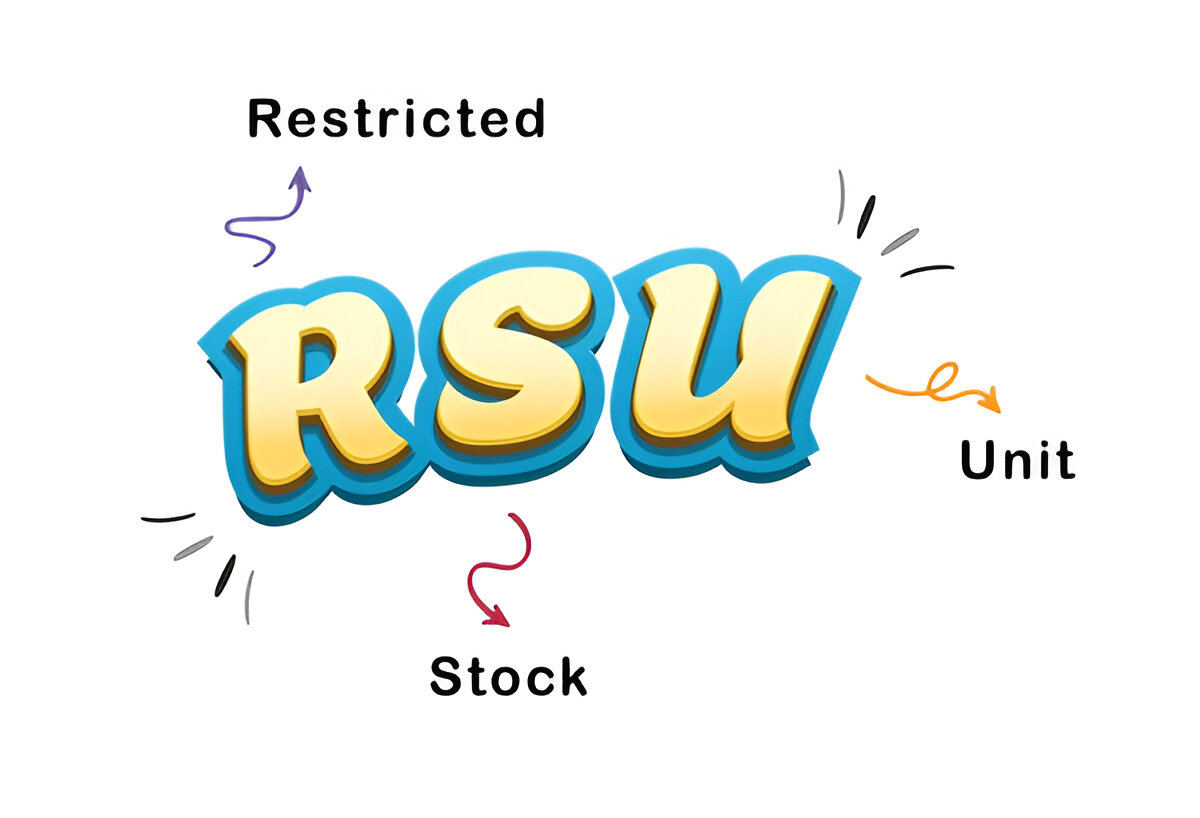
Things You Need to Know About Restricted Stock Units (RSUs)
Restricted Stock Units (RSUs) are a kind of equity compensation commonly offered by companies in the UK to attract and retain talented employees. Unlike traditional stock options, RSUs do not give employees the right to buy shares at a set price. Instead, they represent a company’s promise to grant shares in the future, typically subject to certain conditions such as continued employment or meeting performance targets.
In this guide, we’ll break down how RSUs work, along with their key benefits and potential risks.
Restricted Stock Units
Many companies in the UK offer Restricted Stock Units (RSUs) as part of compensation packages of their employees. These are typically provided either when an employee joins the company or as a performance-based bonus or incentive. RSUs are a way for businesses to reward employees and encourage long-term commitment by aligning employee interests with company growth.
RSUs do not carry any monetary value when they are granted. Instead, they become valuable after a specific period known as the vesting period. Once vested, the RSUs convert into actual shares, which can then be sold for cash.
Example
Let’s say you join an IT company and are granted 200 RSUs with a five-year vesting period. Rather than waiting five years for all 200 units to vest at once, the company uses a graded vesting schedule—20% of the RSUs vest each year. This means after the first year, 40 RSUs (20%) become actual shares that you can sell or hold. The same happens at the end of each subsequent year until all 200 RSUs are fully vested by year five. Companies often continue to grant new RSUs annually, each with its own vesting timeline.
Advantages and Disadvantages of RSUs
Advantages
- RSUs are generally low-risk since you don’t have to invest your own money upfront, and they offer flexibility in how you use them once vested.
- They can give you an edge when negotiating your salary or overall compensation package during a job offer.
- The shares typically remain yours even if you leave the company, depending on the vesting schedule and company policy.
- Knowing that your performance can directly affect the value of your shares can boost your motivation and engagement at work.
- Compared to traditional stock options, RSUs are often seen as better because you are granted shares directly, not just the option to buy them later.
Disadvantages
- When RSUs are first granted, they have no immediate value—you cannot sell them or receive dividends until they vest.
- Once vested, RSUs may trigger tax liabilities, so you could owe income tax on their value even if you don’t sell the shares right away.
- The rules and tax treatment of RSUs vary between companies, so it’s important to understand your specific company’s policies before deciding how much to rely on RSUs as part of your compensation.
The Process of RSUs in the UK
The date when Restricted Stock Units (RSUs) are awarded to an employee is called the grant date.
Typically, a vesting schedule is provided, outlining the timeline over which the RSUs will vest. This means the RSUs become gradually available to the employee according to predetermined milestones or time periods.
On each vesting date, a specified number of RSUs convert into actual company shares. At this point, employees have the option to either keep the shares or sell them.
Managing Your RSUs
If you have received Restricted Stock Units, it’s important to manage them carefully to maximize your employee benefits.
Start by gathering all relevant information from your employer, especially details about the vesting schedule and the company’s specific RSU policy. Understanding these will help you plan effectively.
Consider consulting financial experts, such as those at Cangaf Ltd., who can help you optimise your RSUs and guide you through the tax implications once your units vest.
The Vesting Process
Vesting is the process by which your Restricted Stock Units convert into actual shares, making you the owner of those shares. This usually happens according to a pre-set vesting schedule and may depend on meeting certain conditions, such as continued employment or performance targets.
Taxing RSUs in the UK
You may face tax liabilities when your RSUs vest, not when they are initially granted. The tax treatment is similar to how your salary is taxed—you will be liable to pay income tax and National Insurance contributions on the value of the shares at vesting.
If you decide to hold onto the shares instead of selling them immediately, any gains made when you eventually sell could be subject to Capital Gains Tax.
Keep in mind that your exact tax obligations will depend on your individual circumstances and the specifics of your employer’s RSU plan.
Need help managing your RSUs or have more questions? Contact us at Cangaf Ltd. — we’re here to assist you.
Frequently Asked Question
Are RSUs taxable?
Yes. RSUs are subject to income tax & National Insurance contributions at the time they vest.
Are RSUs counted as income for mortgage applications?
It’s possible but not very common in the UK. Many lenders do not consider RSUs as regular income when assessing mortgage applications.
Do RSUs come with voting rights?
Voting rights may be granted, but only after the RSUs have vested and converted into actual shares, not while they are still restricted.


